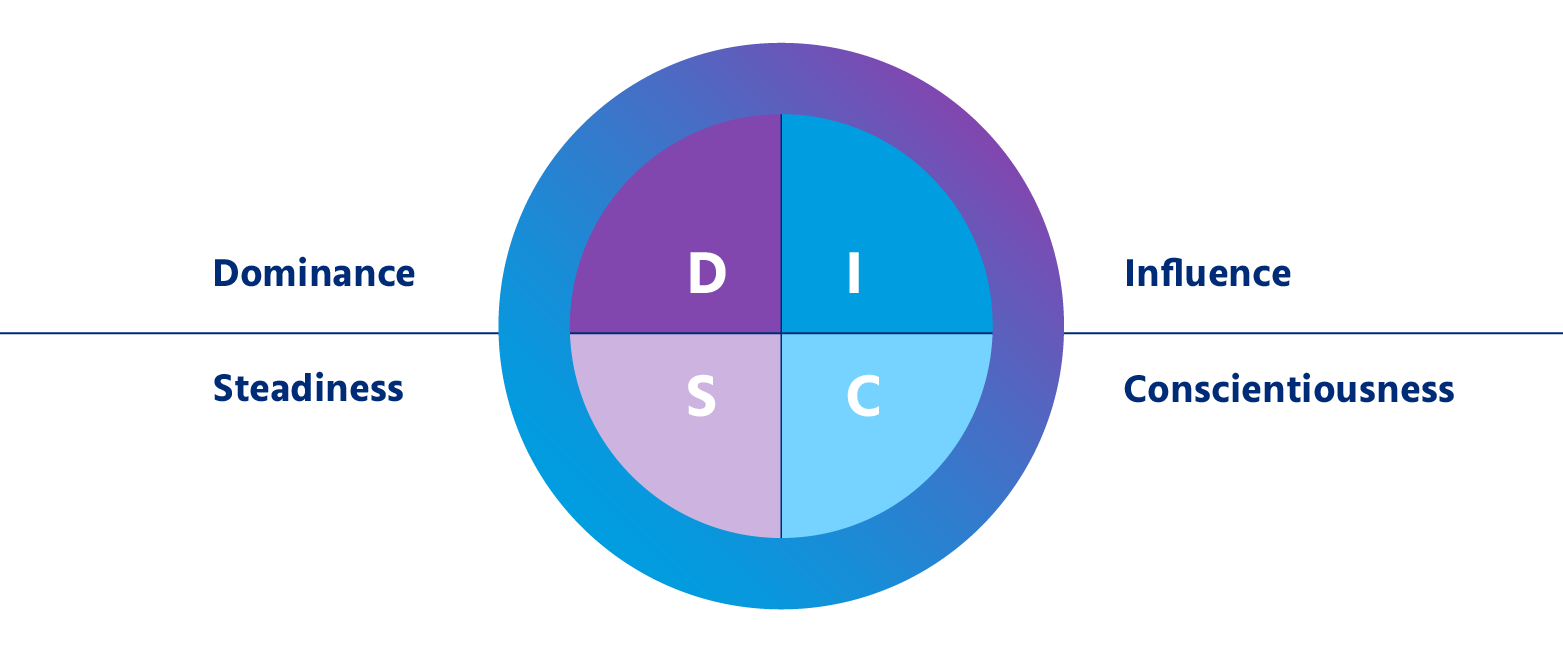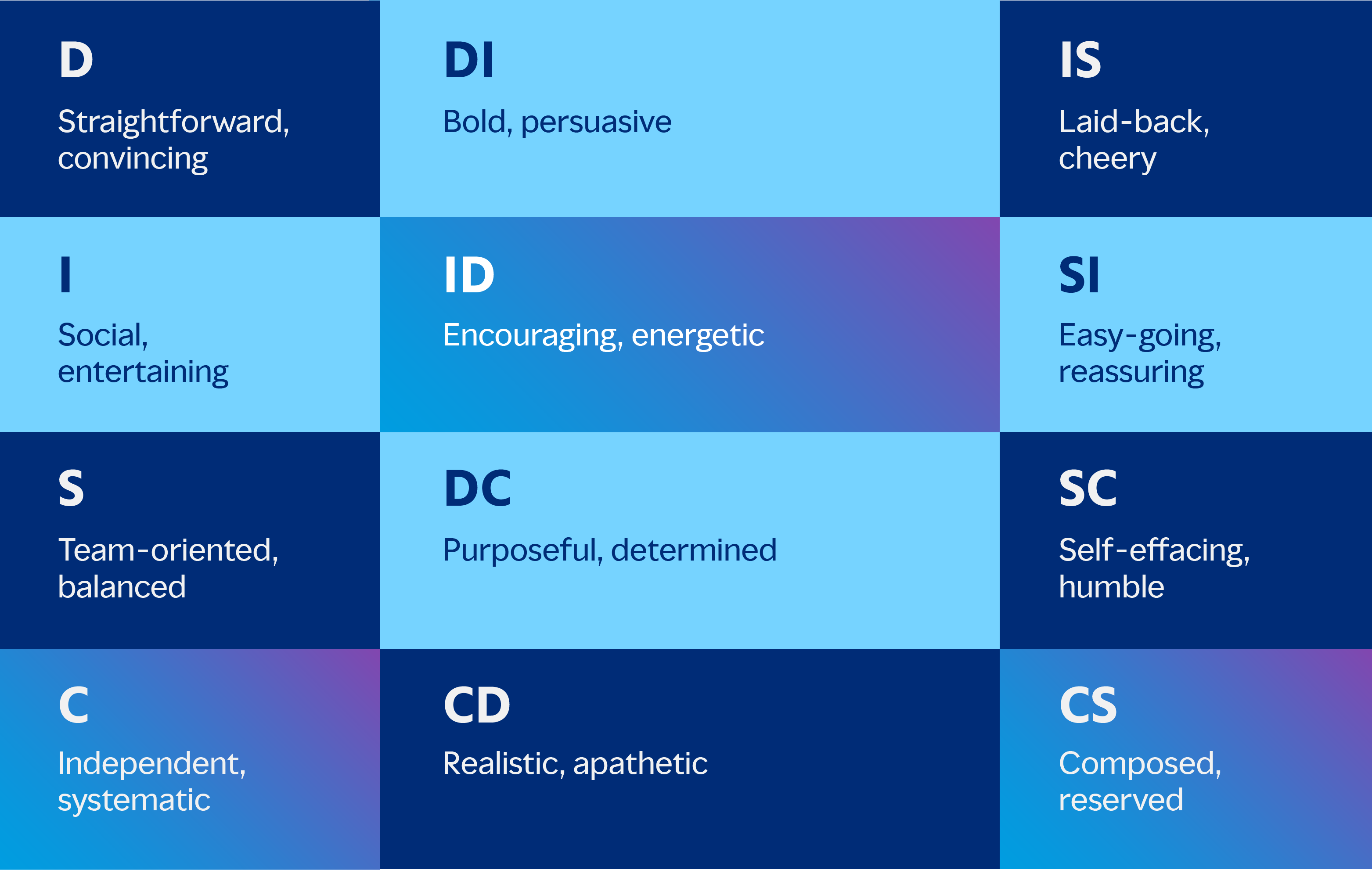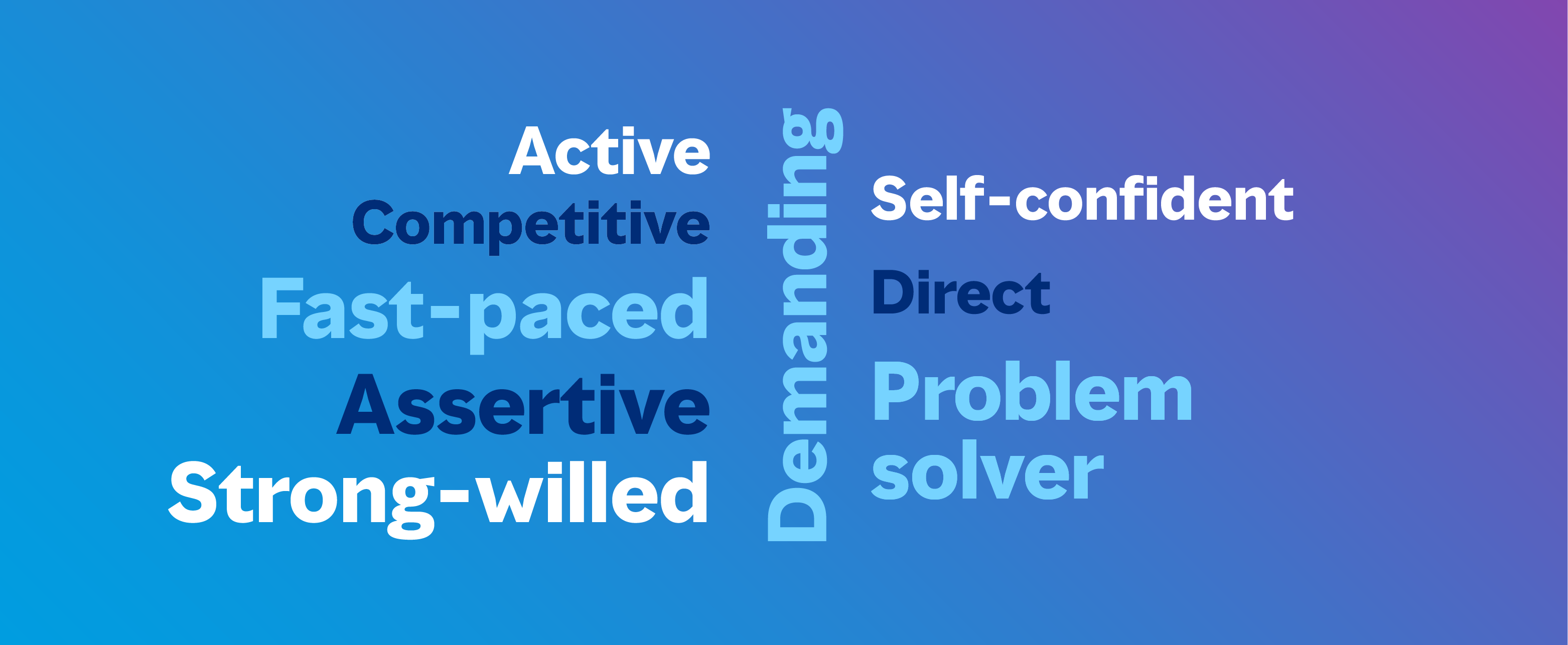Dominance – DISC Axis D:
People with a high ‘D’ score or a D-type DISC personality are task-oriented, outgoing extroverts. The rarest personality type, these individuals are determined, decisive, direct, and demanding. D-type personality traits also include self-confidence, meaning that these individuals are brave enough to take risks, focusing on the big picture.
Influence – DISC Axis I:
The I-type personality defines people who are outgoing, social, motivating, and compelling. Generally, the source of energy in a room, as employees, these individuals can be the life of an organization. However, these individuals also have the tendency to become disorganized under stress or overwhelmed by a need for acceptance.
Steadiness – DISC Axis S:
S-type personalities are introverted and quiet while being spontaneous in people interactions. The personality traits of these individuals include being calm and relaxed, allowing them to bring stability to a company.
Conscientiousness – DISC Axis C:
C-type personality individuals are also quiet, introverted, and task-oriented, have high analytical skills and make carefully calculated decisions. These individuals are well-suited for leadership roles.









 Behavioral Competencies
Behavioral Competencies Cognitive Competencies
Cognitive Competencies Coding Competencies
Coding Competencies Domain Competencies
Domain Competencies


























Would you like to comment?